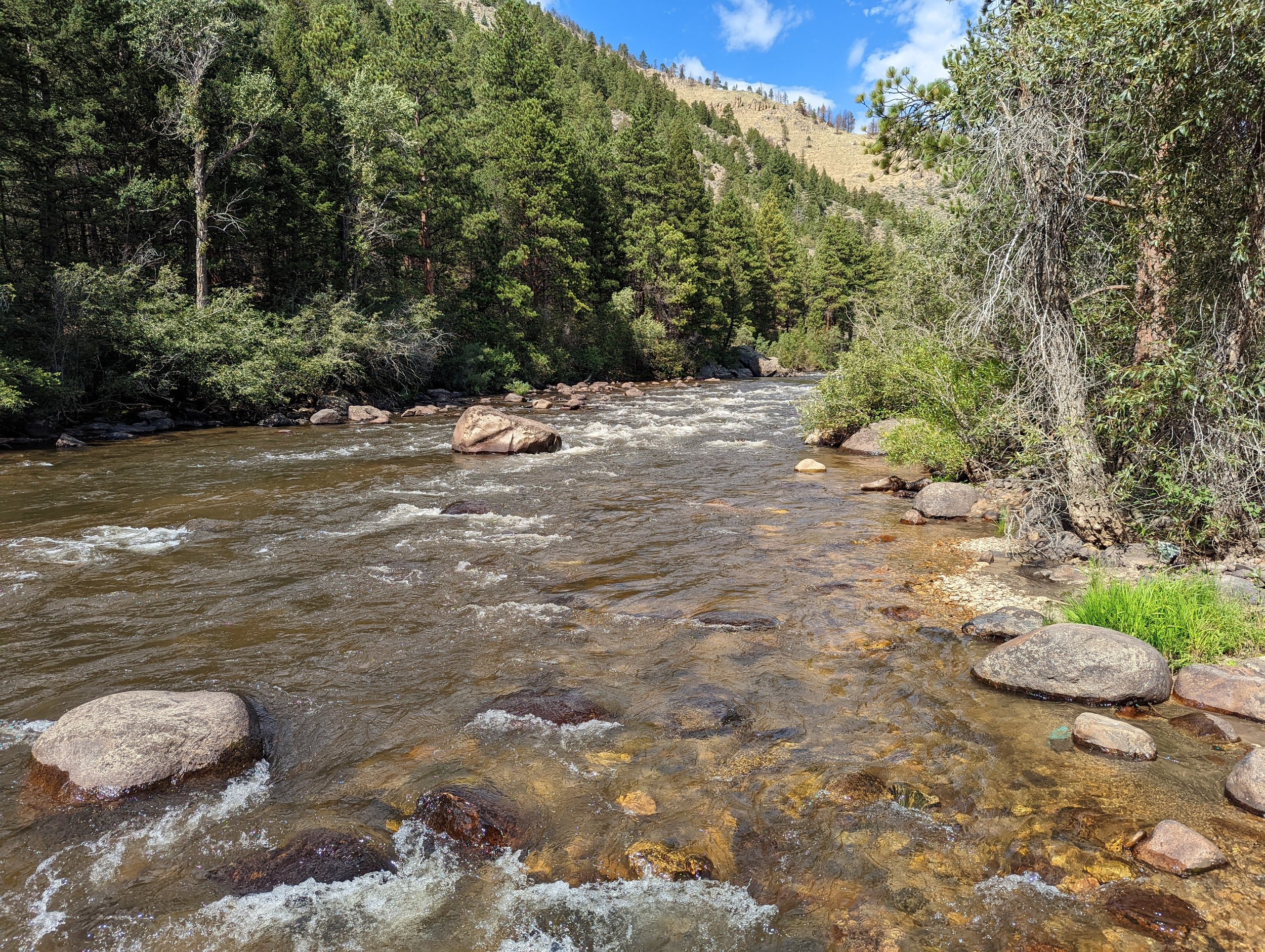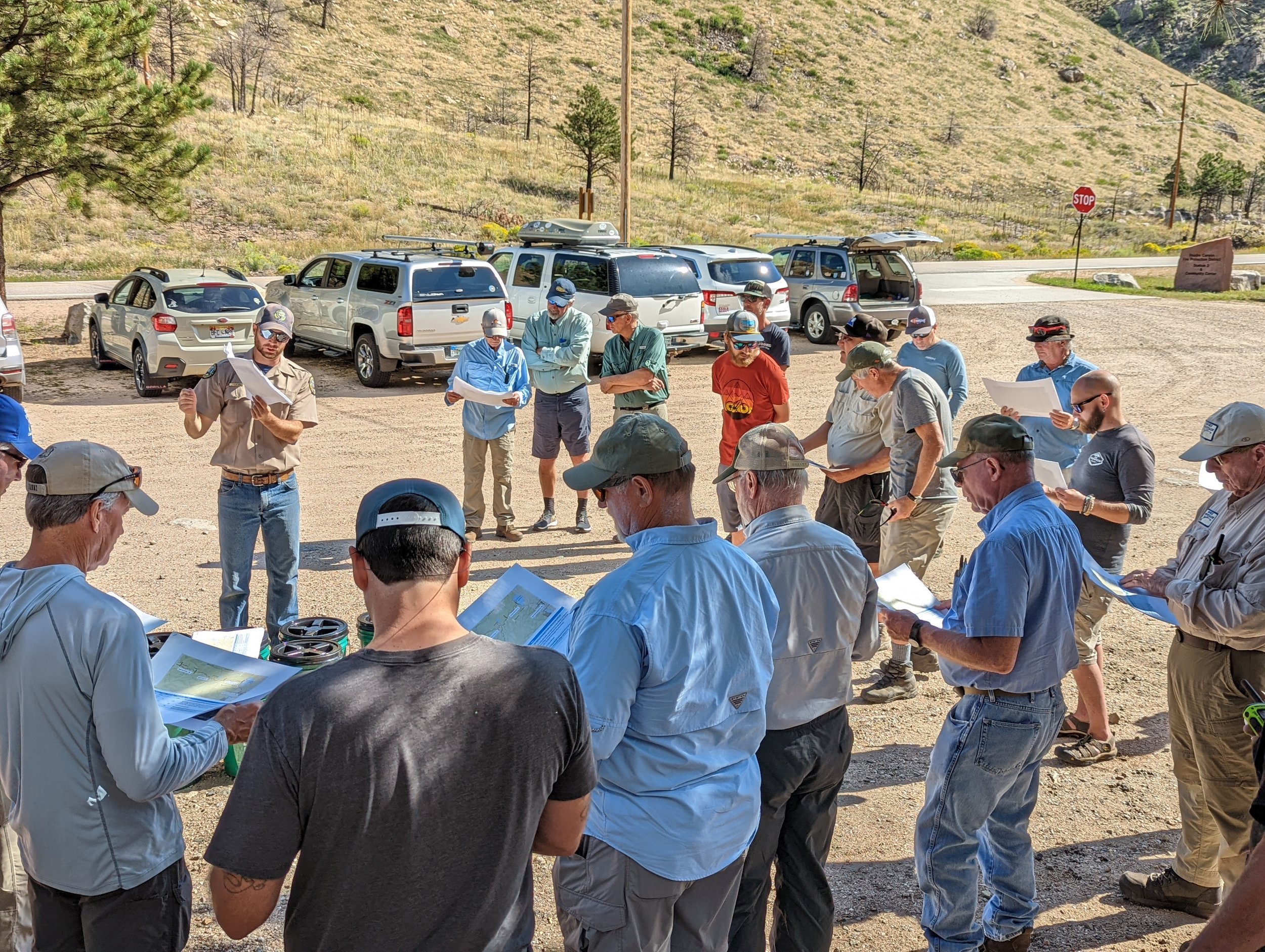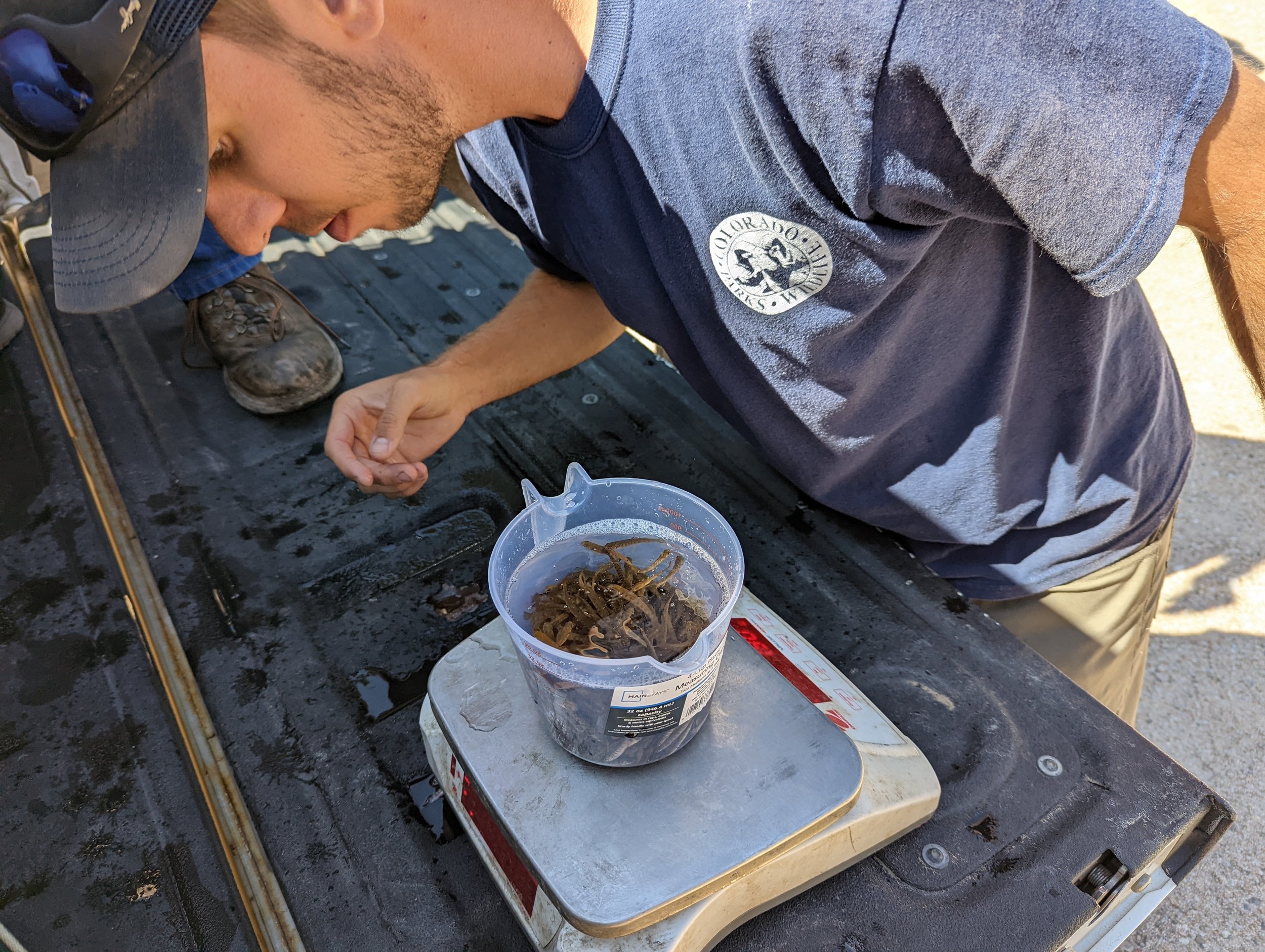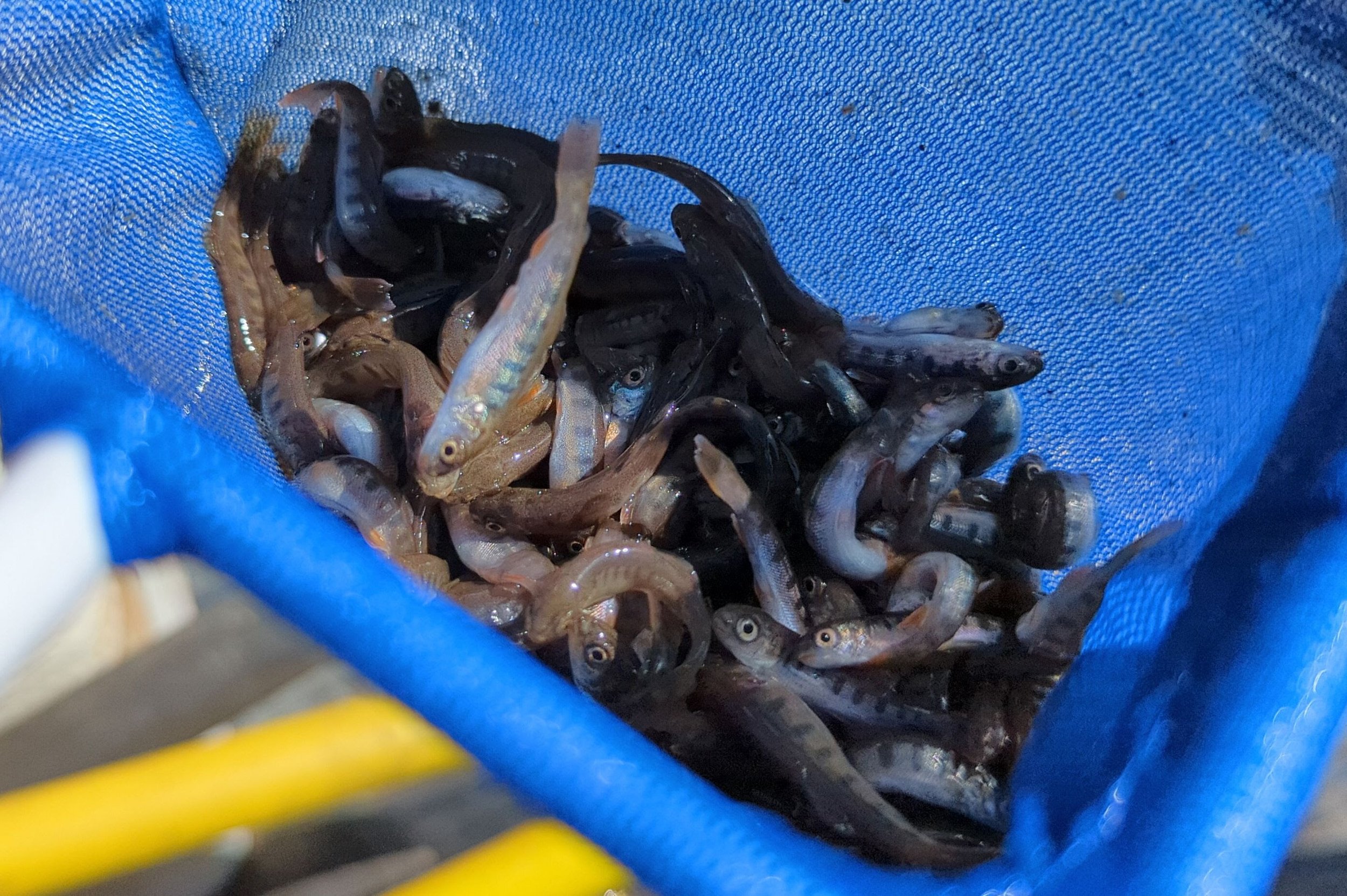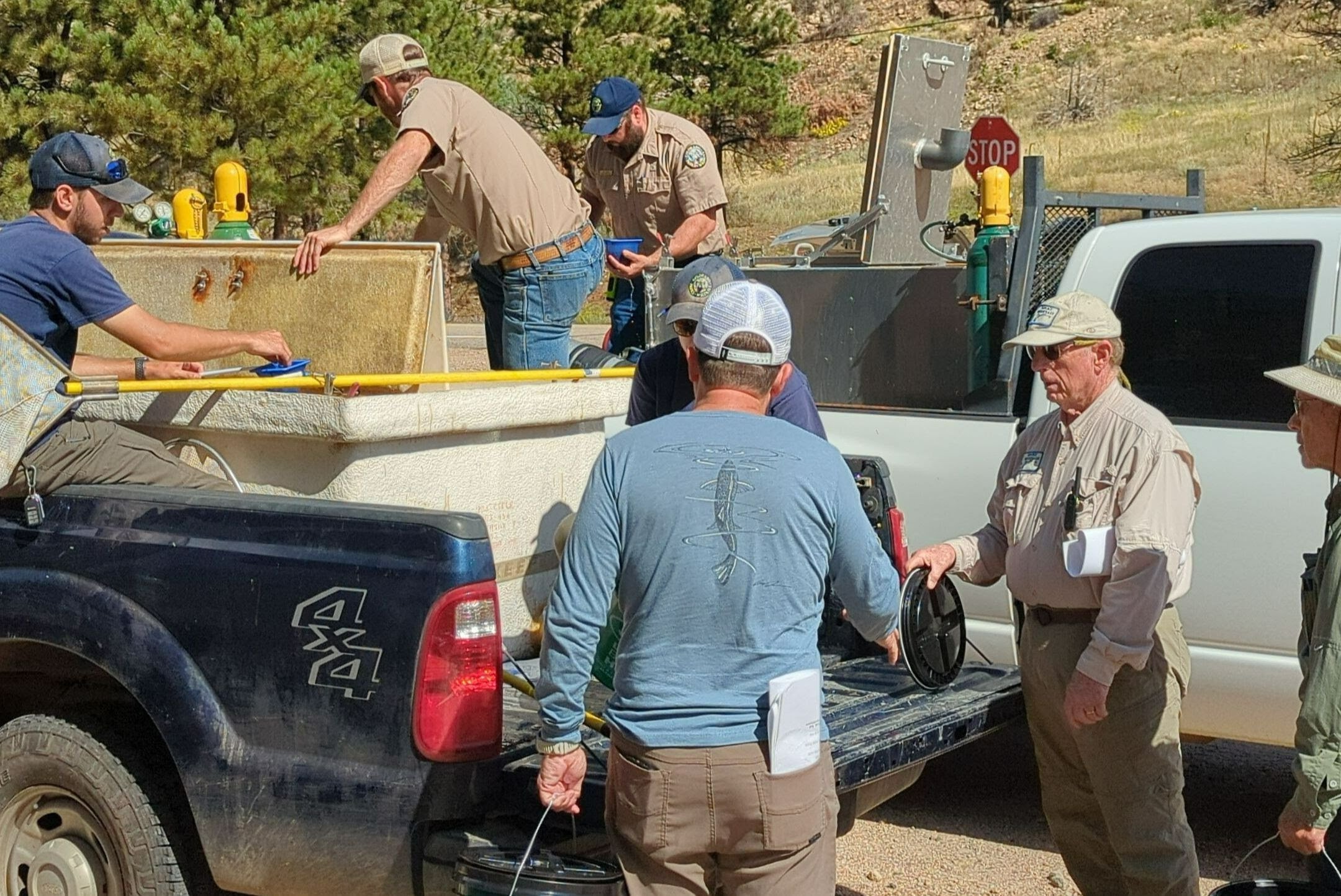Volunteers rally to begin the recovery of the Cache la Poudre River fishery
Reprinted from a release from Colorado Parks and Wildlife:
Joey Livingston
Statewide Public Information Officer
303-345-4658 / joseph.livingston@state.co.us
Debris flows in 2021 devastated fish populations in the
Cache la Poudre River west of Fort Collins
FORT COLLINS, Colo – A year after a catastrophic debris flow decimated over 20 miles of the Cache la Poudre River fishery, 24 volunteers joined Colorado Parks and Wildlife biologists to begin the painstaking process of rebuilding fish populations.
As a hot morning turned into a rainy afternoon, the team hauled buckets of fish up and down a 40-mile stretch of the river to replace the CPW-stocked rainbow trout and support the self-sustaining brown trout that suffocated when sediment and debris cascaded off the Cameron Peak Fire burn scar and choked the river in a July 2021 flash flood.
“The plume of sediment and debris that moved downstream from that event led to fatal conditions in the river for fish due to heavy sediment loads preventing fish from exchanging oxygen across their gills, leading to the fish suffocating,” said Kyle Battige, Aquatic Biologist for CPW.
The recovery effort was necessary after CPW biologists conducted a 10-day sampling effort last fall that found just one brown trout from the Black Hollow Creek confluence to 16 miles downstream at the Narrow sampling station, indicating a complete loss of the fishery. Although trout were captured 20 miles downstream at Stove Prairie, numbers were 80 percent lower in 2021 compared to historic estimates.
A major step in CPW’s multi-year repopulation effort began August 25 with the help of volunteers from Otterbox, The Nature Conservancy, and Rocky Mountain Flycasters, the local chapter of Trout Unlimited.
Jake Eichler, assistant manager of CPW’s Glenwood Springs Hatchery, delivered 115,000 one inch rainbow trout fry to be stocked along a 40-mile stretch of the Cache la Poudre River from the Poudre River State Fish Hatchery to the Overland Trail. Fry are recently hatched fish, approximately one inch in length, that have reached the stage where its yolk-sac has almost disappeared and its swim bladder is operational to the point where the fish can actively feed itself.
The fry were reared at the Glenwood Springs Hatchery from milt and roe (sperm and eggs) collected from wild brood stock. This hatchery is one of the few that rear rainbow trout from wild stock.
Volunteers met with the hatchery truck along Highway 14 to pick up buckets of 500 fish, before driving them to designated stretches of the Poudre River for release. They drove back and forth most of the day, taking bucket after bucket of fish to their new homes.
“The goal is to spread the fish out as much as possible to increase their chances of surviving to adulthood,” Battige said. “Fry can only live in the buckets for a short amount of time before they run out of oxygen, so quickly getting them to a calm stretch of water along the river is important.”
It will be several years before these fish grow to a catchable size; however, the long wait and some afternoon rain weren’t enough to deter Rocky Mountain Flycaster members, including president Mark Miller from doing this important work.
“Over 20 of our members traveled from Berthoud, Loveland, Fort Collins, Greeley and Evans to assist CPW in restoring this fishery,” Miller said. “Rocky Mountain Flycasters has been conserving and protecting Northern Colorado watersheds since 1983 and we are excited to be a part of this effort to improve this amazing resource for the future”
[VIDEO] Watch CPW and volunteers stock fish in the Cache la Poudre River
At this time CPW is not stocking brown trout. Brown trout are still present up and downstream of the impacted reaches of the river and the long-term hope is that they will return naturally over time. The intent is to establish rainbow trout populations while brown trout numbers are reduced.
“Assistance from organizations such as Trout Unlimited is vital to the work that CPW does,” Battige said. “Without them, the amount of time, effort and resources required to stock these fish increases dramatically.”
“The sportfishing benefits of this effort will not be felt for years to come, but with the hard work and dedicated support of organizations like Trout Unlimited, we were able to take these early steps toward recovery,” Battige said.
Learn more about CPW’s history as fishery and aquatic management leaders:

